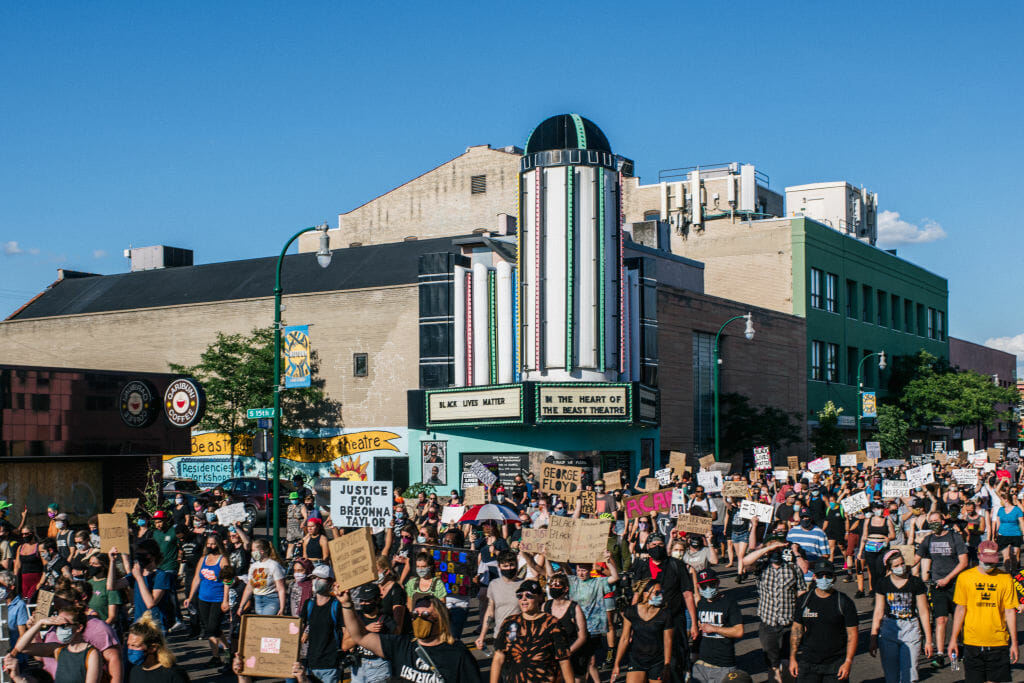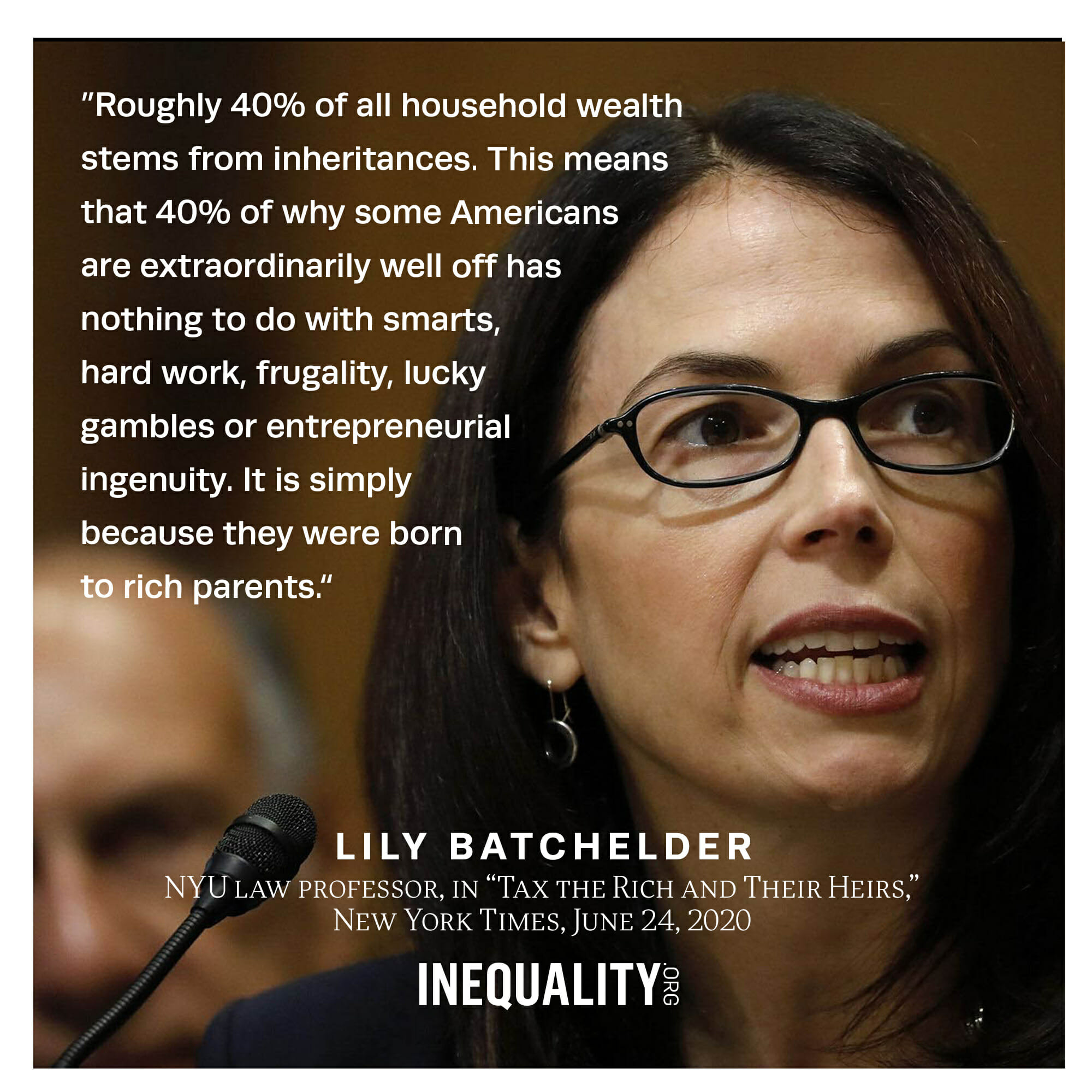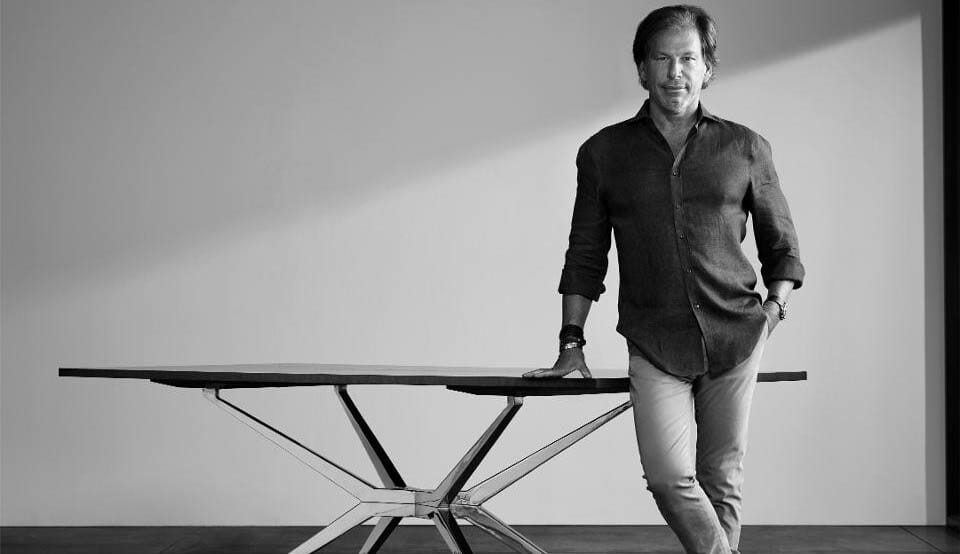| THIS WEEK |
Earlier this year, we brought you the story of Philadelphia’s Hahnemann University Hospital. Private equity exec Joel Freedman bought the hospital in 2018, then shut it down with a plan to turn the site into luxury condos. When Covid-19 hit, Freedman offered to rent the hospital to the city at a price so exorbitant the mayor accused him of “ trying to make a buck” off a pandemic.
This past weekend, Black Lives Matter care workers briefly took over Hahnemann, offering free healthcare services to the neighborhood. Cops in riot gear ended the occupation, still another example of a police force more eager to protect private property than human life.
The protesters had occupied the hospital under the banner of “care not cops,” a slogan that gets at the heart of what an equitable world should look like. More this week on some concrete demands that could bring us closer to that world, as well as one tool to stimulate the economy and avoid humanitarian catastrophe in the time of Covid-19.
Chuck Collins, for the Institute for Policy Studies Inequality.org team |
|
| |
|
| INEQUALITY BY THE NUMBERS |
 |
|
|
|
| |
|
| FACES ON THE FRONTLINES |
 |
| Three Protest Demands For Sustained Change |
| Protesters across the United States – and the world – have spent the last several weeks in the streets in defense of Black life. The uprisings have forced public officials forced into action on a wide range of potential policies, from modest reforms to bold changes. With momentum still building, the movement is calling for the kinds of structural changes that have the potential to fundamentally shift our notions of safety while challenging the violent inequality endemic in American life. More this week on some of the leading organizers and their demands on everything from community reinvestment to decriminalizing survival. |
|
| |
|
| WORDS OF WISDOM |
 |
|
|
|
| |
|
PETULANT PLUTOCRAT
OF THE WEEK |
 |
| A Struggle to Restore Some Fractured Self-Esteem |
| Not many CEOs have a bigger chip on their shoulder than Gary Friedman, the 62-year-old CEO at RH, the luxury furniture retailer formerly known as Restoration Hardware. Years ago, as a “D” student at a local California community college, Friedman’s college counselor told him he was wasting taxpayer dollars. So the struggling student dropped out and has been pushing himself up the corporate ladder ever since. In mid-February, with RH stock selling at over $250 a share, eternal billionaire status finally seemed a lock for Friedman. But then the pandemic plunged RH shares down to the $80 neighborhood. Two weeks later, Friedman laid off 440 employees and furloughed 2,300 others. RH shares then tripled in value, bringing Friedman's personal fortune to $1.5 billion. Earlier this month, the CEO informed shareholders he now plans to expand RH into yachts and luxury homes and hotels — and make the company “a $20 billion dollar global brand.” He concluded his missive to shareholders, Forbes reports, “congratulating himself on taking the road less traveled.” |
|
| |
|
| BOLD SOLUTIONS |
 |
| Global Stimulus Via International Money Creation |
| The economic fallout from the pandemic is expected to hit developing countries hardest. Experts predict the number of people facing starvation could roughly double to 265 million, while as many as half a billion more could be forced into poverty. Special Drawing Rights, a form of money created by the International Monetary Fund, would be an effective tool for stimulating the global economy and avoiding a humanitarian disaster without cost to taxpayers. And yet the Trump administration is using their veto power over IMF decisions to block this desperately needed financial support. A new coalition is calling for Congressional action to make sure these funds are released. |
|
| |
|
| GREED AT A GLANCE |
 |
|
|
|
| |
|
| TOO MUCH |
 |
| A Good Many More Reasons to Cut CEO Pay |
| America’s dirtiest three-letter word may now be “CEO,” and our ongoing economic meltdown is only making that tag even dirtier. Chief executives the nation over have spent this past spring scheming to keep their pockets stuffed while their workers suffer wage cuts, layoffs, and even death by Covid-19. The worst part? Their relentless rush to hit the high-pay jackpot is fueling the calamities that today confront us. Inequality.org co-editor Sam Pizzigati has more. |
|
|
|
| |
|
| MUST READS |
This week on Inequality.org
Brian Wakamo, Postal Workers Deliver a Message to Capitol Hill: Save the USPS. Two million Americans petitioned Capitol Hill to show their support for the survival of our public Postal Service.
Elsewhere on the Web
Dedrick Asante-Muhammad and Chuck Collins, The pandemic is accelerating the racial wealth divide. Here’s how we turn it around, MarketWatch. If we want justice, we must help Black families invest in themselves.
Lola Butcher, America the Unhealthy: Inequality Kills, Knowable Magazine. The best interview yet on the link between inequality and life expectancy explains why the United States can have about the lowest smoking rate in the developed world and the shortest life expectancy.
Robert Reich, When Bosses Shared Their Profits, New York Times. Since the 1980s, profit-sharing has declined. It deserves to make a comeback.
Morris Pearl, Rich Americans like me should use our money and influence to end systemic racism, USA Today. Many rich people have no problem calling out police violence because the police play a scant role in their daily lives. These rich have a much harder time rethinking how their own economic success rests on the oppression of others.
Jason Solomon, In Minneapolis or Tallahassee, people of color are arrested while the wealthy white walk, Tallahassee Democrat. Only rich white people can get away with murder.
Editorial board, The Jobs We Need, New York Times. A compelling analysis of why the influence of the wealthy must be curbed for the voices of working people to be heard.
Lee Camp, The Secret Reason Billionaires Love a Pandemic, Consortium News. The exorbitantly rich should be put in facilities where they can be monitored and receive the treatment they require.
Ryan Bradley, The Social Codes of the Crazy Rich, Atlantic. The author of Crazy Rich Asians reflects on the dynamics of snobbery, the dance people take part in to prove they’re richer or smarter or better-stationed than someone else.
Nouriel Roubini, The Main Street Manifesto, Project Syndicate. Our racially and socially segregated educational system fosters the myth of meritocracy while consolidating the position of elites.
David Sirota, The Supreme Court Is A Corporate Star Chamber, TMI. The high court has become one of the most powerful weapons of billionaires and the businesses they run.
Alan Macleod, Covid-19 Exacerbating America’s Massive Wealth Inequality and Racial Divide, MintPress. Extreme levels of concentrated wealth are breaking down our civic life.
Mihai Andrei, What will the economy look like after the pandemic? Past crises suggest rising inequality, ZME Science. In our rush to restart the economy, we must not forget that leaving people behind can create even more trouble down the line.
Michael Stott, Latin America’s taxing problem, Financial Times. A colossal fall in regular tax revenues has eight nations in Latin America, the world's most unequal region, warming to the notion of wealth taxes. |
|
| |
|
| A FINAL FIGURE |
 |
|
|
|
| |
|
|